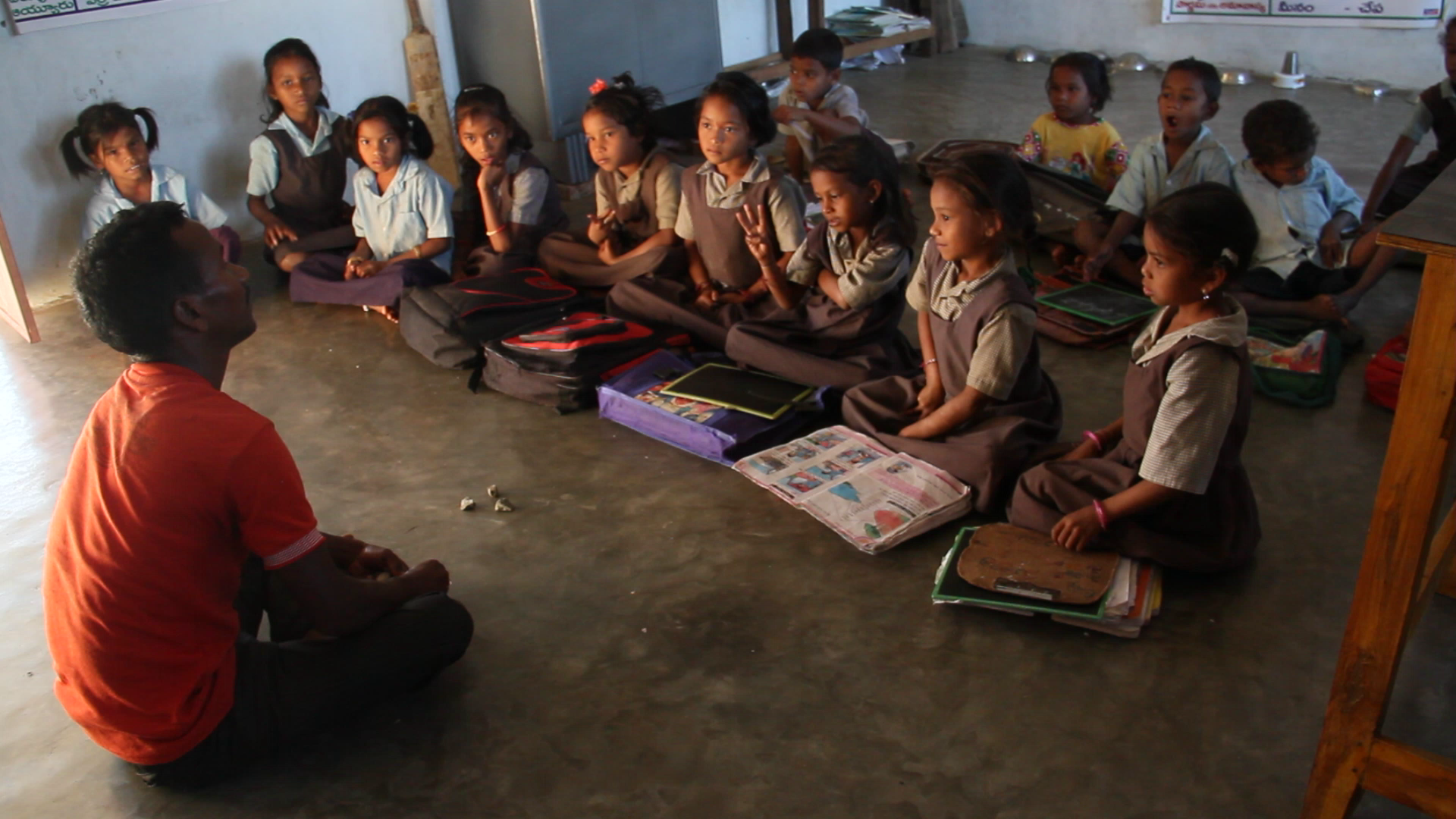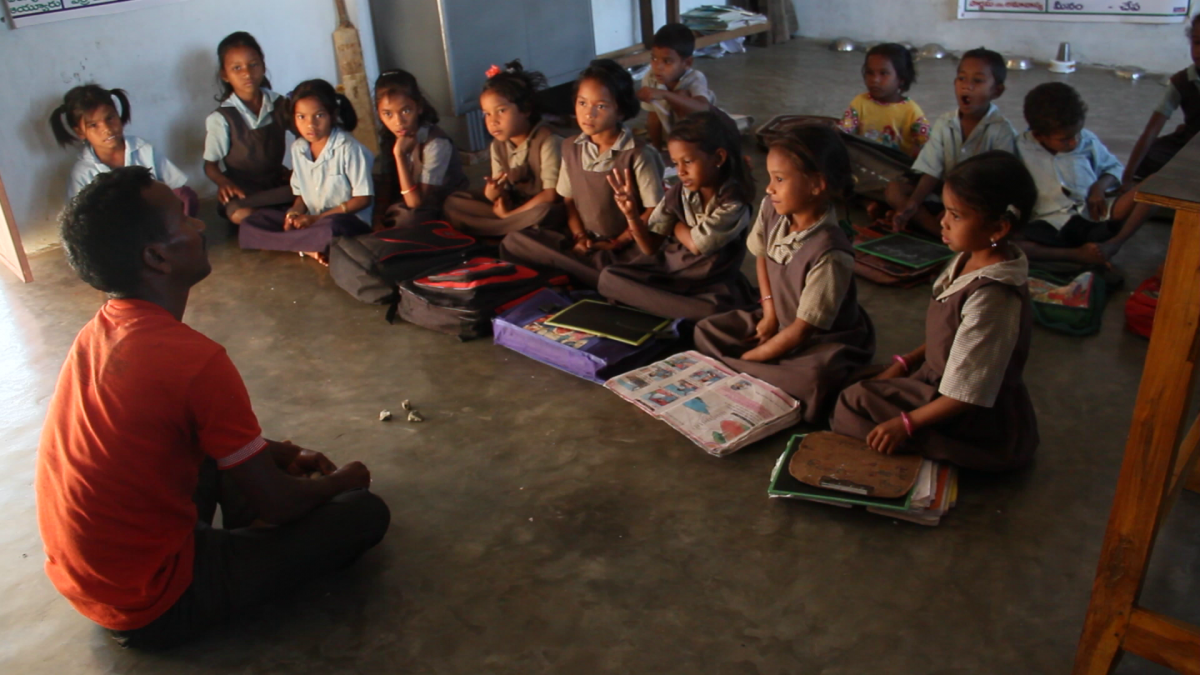Despite limited resources, a group of volunteers strives hard to ensure access to quality education for all in the tribal zone of Andhra Pradesh. Chandra Kiran Katta explores the difference these dedicated workers are making to the lives of the tribal children there.
About 9.58 % of the population of Vizianagaram district of Andhra Pradesh are tribals who live in remote hilly areas. The region is predominantly populated by the Savara, Kondadora, and Jatapu tribes, and the average literacy rate is only 59 %. The low levels of literacy are attributed to high drop-out rates among the tribal children, who face difficulty in understanding the medium of instruction, which is in Telugu.
In 2010, Aide et Action, an international NGO, introduced ‘Back to Basics’, a concept to improve the quality of teaching and learning in the schools with the support of ARTS, a local NGO. Accordingly, 82 government primary schools in Kurupam, Gummalakshipuram, and Jiyyamvalasa mandals were identified and provided with a volunteer who would work closely with the teachers.
At the commencement of each academic year, the volunteers spent a substantial amount of time in the school doing a competency assessment of each child, and analyzed their reading, writing, and arithmetic skills.
Based on the skill assessment, they provided special attention to the children who fared average and below average.

The volunteers procured locally available resources like stones and sticks to develop low-cost teaching and learning material which made it easy for the child to understand. “If I explain 2+2=4 on a board, the child might face difficulty in understanding. But he/she will show interest and learn easily if I use four stones and make them count. This way, they relate to the material, and learn easily,” said Dorababu, a volunteer from Pengava village.
As a result of the efforts of the volunteers, the children who once shied away from school started attending regularly. The results are very encouraging.
Most of the children who were about to drop out of school have completed their schooling with good grades.
“I was very afraid of attending class. It was very difficult for me to even write in Telugu looking at the board. Though my mind would read the word, my hand would not support me in writing it. But the volunteer taught me using many easy methods. He helped me set a goal and even encouraged me to practice archery. I am now a district-level archer, and aim to become a police officer,” said Parvathi. A Class XI student, she passed her Class X with an A grade. Parvathi is among the first batch of students introduced to the ‘Back to Basics’ concepts.
(The author is a Team Member with Aide et Action International South Asia.)
You can help efforts to reach more marginalized communities by donating to Aide et Action International South Asia here.
Like this story? Or have something to share? Write to us: contact@thebetterindia.com, or connect with us on Facebook and Twitter.
NEW: Click here to get positive news on WhatsApp!
If you found our stories insightful, informative, or even just enjoyable, we invite you to consider making a voluntary payment to support the work we do at The Better India. Your contribution helps us continue producing quality content that educates, inspires, and drives positive change.
Choose one of the payment options below for your contribution-
By paying for the stories you value, you directly contribute to sustaining our efforts focused on making a difference in the world. Together, let's ensure that impactful stories continue to be told and shared, enriching lives and communities alike.
Thank you for your support. Here are some frequently asked questions you might find helpful to know why you are contributing?

